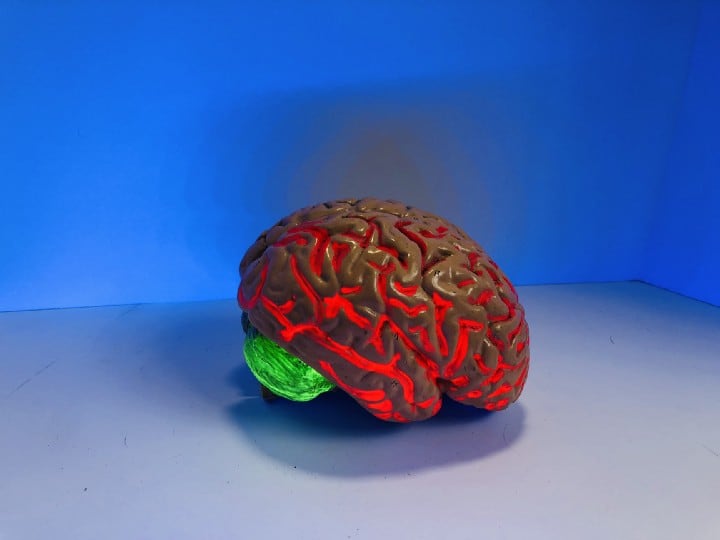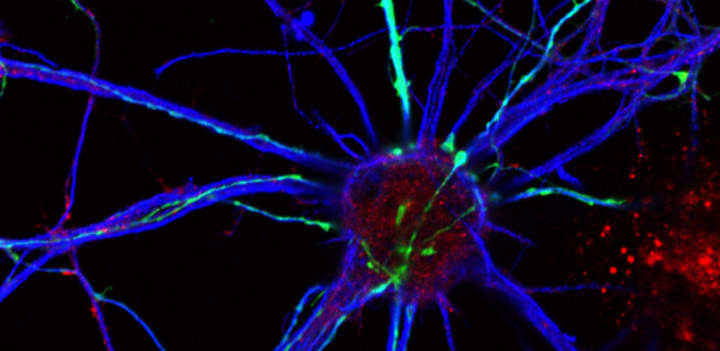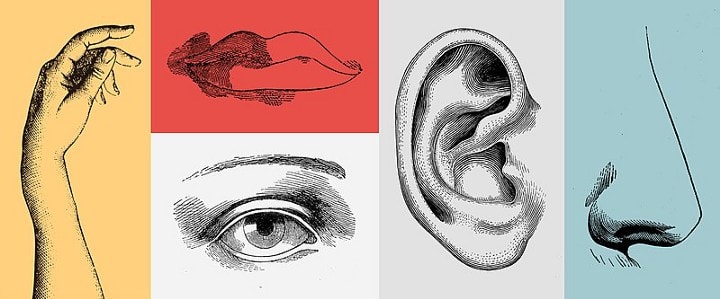An Answer For Anyone That Can't Visualize Memories, Ideas, Or What Ifs In The Minds Eye
Imagine that you’re blind. Blindness keeps people from seeing, including what they want to see. Imagine that your mind is blind. How much harder is it to tap into your creative side if you suffer from mindblindness? Yes, mindblindness is real.

If you’ve ever struggled to see yourself doing something, to picture a dream, or to imagine a warm sunny day in the middle of the winter, there could be a reason. Have you heard someone say they can almost taste something without it being there, see themselves in memory, or picture something that hasn’t happened or doesn’t exist? Are you one of the millions of people that struggle with this?
Some people are gifted artists. They can sit down, put pencil to paper, and sketch things they see in their memories. Others have to have an active image to draw inspiration from, something in front of them. Other people struggle to remember faces, failing to be able to associate them with the names of people they’ve previously met.
Perhaps you have been this way your entire life. You might have known there was something off, different, or out of sorts from talking to people. You may have heard people vividly recall images or met people that can see something when described like it’s there. You were someone that wasn’t able to do the same things.
It’s because your brain works differently than others; like it's blindfolded.

What’s Mindblindness
When someone says picture this, you’re not alone if you can’t. Millions of people are unable to visualize imagery. Could you be suffering from mindblindness?
Imagine you’re on vacation. You’ve gone to your favorite place. Can you see yourself there? What do you see, in your mind, when you imagine returning to this place?
Between one and three percent of the population can’t visualize any imagery in their head. Those that can’t have a rare disorder known as Aphantisia. You’re not alone. 1.5% of the population equals around 18 million.
Aphantasia
Aphantasia traces back more than 2000 years, to Aristotle, who believed in the sixth sense of visual imagination called Phantasia. Aphantasia is the absence of mental imagery. While the disorders in cognition have been recognized as far back as 340 B.C. both terms were coined in 2015 by a neurology professor in the U.K. named Dr. Adam Zeman.
Visual imagery helps people in processing information. It happens when your brain creates images, or pictures, inside your head. As many as 1 in 55 people don’t possess the ability to see pictures in their minds. If not, it means the visual cortex in your brain doesn’t work the way everyone else's does.
The visual cortex’s primary purpose is receiving, segmenting, and integrating visual information. The processed information from the cortex is sent to other regions of the brain. That’s where the brain analyzes and utilizes the information.

Effects Of Aphantasia On Life
The majority of people with long-term, or lifetime aphantasia, first notice it when they’re in their teens or twenties. They find out they're different by noticing other people can imagine images in the “mind’s eye.” Some people with the disorder describe the effect as a substantial loss of visual imagery while some could conjure no visual imagery at all.
In a study, participants described having involuntary mental images or “flashes” and dreams. Researchers believe this suggests a big difference between thinking up an image and involuntarily dreaming up images.
One of the things that people with the condition could experience is trouble remembering everyday things like the number of windows on a building. While most can use mental images to jog their memories, asphantasiacs have to use other tricks or tactics to help recall details. They will tend to use knowledge, memories, or other senses.
What can you imagine? Do you have an active imagination, or do you struggle to dream things? Someone like J.K. Rowlings can picture intensely detailed worlds, characters, colors of things, and even how someone’s hair rests on their head. Those with aphantasia can’t perform creatively at the same level without work, focus, and intense concentration.
Areas of your life that can also be affected:
- Struggle to remember or “relive” life events
- Have a hard time imagining future or hypothetical events
- Have problems with factual memory
- Dreamless
Reliving past events, or going to your happy place, is how some cope with the stresses of day-to-day life, and how they get by. Some have problems with factual memories, such as the past two presidents, and others can’t imagine future possibilities or hypotheticals. They can’t imagine “What if” scenarios.

Life With Aphantasia
For people that suffer from aphantasia, some things can be distressing about the disorder. You might not be able to picture a person from your past or a special place. After losing a loved one, not being able to imagine their faces can be distressing.
Studies posted online and in the neurological community suggest the disorder doesn’t hurt a person’s chance at success in life. People from all walks of life have had aphantasia, including doctors, Ph. D.s, engineers, and other professionals.
Successful People With Aphantasia
- Ed Catmull, co-founder of Pixar and former president of Walt Disney Animation Studios
- James Harkin, British television writer
- Glen Keane, animator, author, and illustrator
- Mark Lawrence, a fantasy author
- Yoon Ha Lee, a science fiction author
- Derek Parfit, a British philosopher
- Black Ross, co-creator of Mozilla Firefox
Many successful people have been successful over the years, and some people with aphantasia don’t comprehend the difference between themselves and others until they’re older.
The human experience has variations, and living with Aphantasia is just one of those, not something that requires medical or mental health treatment. It may affect different parts of your life, however. Since mental imagery plays a role in learning, not being able to visualize scenes or things in your mind might hamper aspects of learning.

Examples Of Aphantasia Symptoms Affecting Life
When you imagine things in your past, do you see them, or are you simply going through a list of events you lived? Are you able to remember the people in those events by their image? Some people struggle to put a name to a face.
“I’m sorry, I sometimes don’t remember faces.”
Does that sentence sound familiar? If so, you might suffer from aphantasia. This doesn’t mean much more than vaguely acknowledging that your memory isn’t what it used to be or that you don’t recall where you met someone. Being unable to picture things in your mind might render you unable to recognize someone, someone that most people wouldn’t want to forget.
Imagine someone calling out your name. You hear it several times until you look for the source. You don’t know who’s calling you, but it’s you. Maybe you’ve had this happen, and after minutes of talking, you remember this person. One of your other senses, like hearing, or smell, tells you this person is familiar.
The embarrassment of not being able to visualize this person in your mind is palpable. Especially your first lover. 23-year-olds don’t suffer memory loss that easily, especially healthy ones, and it had only been 7 years. Scenarios like this one are real to aphantasics.
The embarrassment of not being able to visualize this person in your mind is palpable. Especially if this is your first lover. 23-year-olds don’t suffer memory loss that easily, especially healthy ones, and it had only been 7 years. Scenarios like this one are real to aphantasics.

The disorder, aphantasia, is often thought of as only a visual condition. Many in the scientific community believe it’s more multisensory. People who lack mental imagery abilities may have reduced capacities to access other mental senses. They may struggle to imagine sounds, movements, tastes, and feelings of touch.
Imagine the taste of the McRib if you’re a fan. That slightly sweet barbeque taste, the onions, and pickles over the riblet. Other people can’t conceptualize the tastes of their favorite foods or how it felt the last time their parents hugged them.
Those people are multisensory aphantasics because they suffer from reduced mental ability across multiple senses.
Reasons For Aphantasia
There is a limited amount of knowledge to date when it comes to Aphantasia. However, findings offer some insights or clues as to the cause of the disorder.
- In one case, MRI scans found brain activation patterns when looking at pictures of the faces of famous people had no different effect than normal controls. When a patient tried to visualize imagery, there was a reduction in activation patterns across posterior networks in the brain, while frontal activity increased significantly compared to controls.
- Researchers believe the patient relied on different cognitive strategies during the imagery task.
- The authors of the study proposed that the results indicate performance on visual memory and visual imagery are not dependent on the experience of visual imagery.

There’s a limited amount of evidence that people with aphantasia might be more likely to have traits of autism, including impairments in social skills and decreased imagination. More research is needed to determine links to autism and other mental health conditions. Right now, it is not considered a form of mental illness but might represent merely a variation in cognition and experiences.
Where aphantasia comes from is yet to be decided, but there is evidence that suggests to researchers that it’s hereditary. Different articles and papers report that if you have aphantasia, a primary family member (mother, father, brother, sister) likely has it.
Thoughts On Aphantasia
When I first heard the term, I had no idea about aphantasia. After looking at the disorder, I likely have it to some degree. Much like autism, there may be varying degrees of aphantasia, and the spectrum would go to the opposite extreme or hyperphantasia.
The one thing I learned from the articles is that those with aphantasia are likely people with above-average to extremely high intelligence, with IQs between 120 and 175. Like Albert Einstein, people with higher IQs often suffer a degree of social issues and are looked upon as being different. If you think you might suffer from aphantasia, you might want to visit the Aphantasia Network and take the Vividness of Visual Imagery Questionnaire.
Being different isn’t a bad thing. Aphantasia means your brain processes information in different ways than others. That’s ultimately the only takeaway that matters.
References:
Aphantasia Network.com
National Center for Biotechnology Information
www.verywellmind.com/What Is Aphantasia
www.webmd.com/What Is Aphantasia
www.time.com/What's it like to be 'Mind Blind'
About the Creator
Jason Ray Morton
I have always enjoyed writing and exploring new ideas, new beliefs, and the dreams that rattle around inside my head. I have enjoyed the current state of science, human progress, fantasy and existence and write about them when I can.
Reader insights
Nice work
Very well written. Keep up the good work!
Top insight
Easy to read and follow
Well-structured & engaging content






Comments
There are no comments for this story
Be the first to respond and start the conversation.